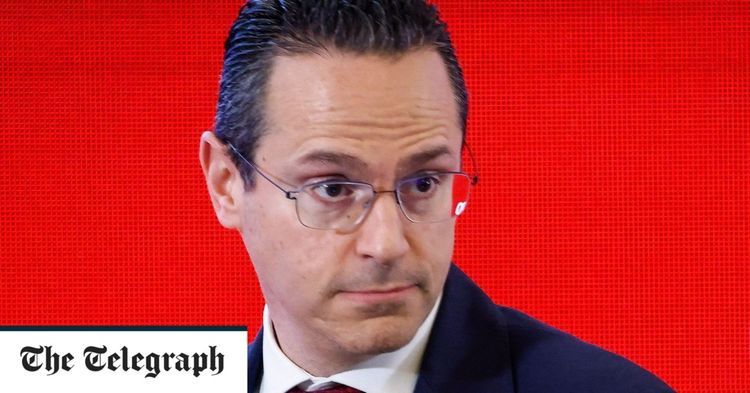Shell defies climate critics to ramp up fossil fuel production

Shell is intensifying its focus on earning money from non-renewable resources while increasing dividends to investors in an effort to appeal to the financial markets.
On Wednesday, the company listed on the FTSE 100 declared their intention to provide more benefits to investors. They assured shareholders of a 15% growth in dividends and at least $5 billion worth of stock buybacks from mid-2023.
The planned amount of money that will be invested in capital is being reduced. It was expected to be between $23-27 billion for this year, but it will be lowered to $22-25 billion in both 2024 and 2025.
The corporation declared its intention to broaden its thriving liquefied natural gas enterprise. At the same time, it will direct its investment efforts to developing "low carbon" technologies such as hydrogen, biofuels, electric vehicle charging, and carbon capture and storage.
The article didn't talk about sustainable power sources like wind and solar, which are receiving high levels of financial support worldwide.
Shell's CEO, Wael Sawan, expressed that the company is making investments aimed at ensuring the provision of reliable energy for customers in the present and future. Additionally, Shell is committed to enhancing its competitiveness in a low-carbon economy.
We will use performance, discipline, and simplification as our guideposts to invest money to improve shareholder profits and to support the move towards cleaner energy sources.
In order to significantly contribute to the reduction of carbon emissions in the worldwide energy sector, it is crucial to consistently generate lucrative strategies that can be rapidly expanded.
Our priority is to invest in effective models that yield the greatest profits while leveraging our strengths.
Shell made a promise to provide $12 billion to its shareholders through comparable initiatives in the first six months following the all-time high earnings of $40 billion in 2022 resulting from the spike in energy prices.
Nonetheless, amidst the pandemic, the establishment lowered its dividend and the disbursement still stands at 30 percent lower compared to its pre-Covid rate.
The latest action taken by Shell is believed to be an attempt at bridging the distance between themselves and American competitors who are considered more valuable. Sawan is scheduled to give a presentation to investors in New York tonight.
However, there is a possibility that the growth may not meet expectations. According to RBC analyst Biraj Borkhataria, the rise may be viewed as a let-down at first.
He said: "Based on our discussions about the event, we think that the general agreement among market participants was for a rise of approximately 20 percent."
Although, Shell made high profits last year due to the price rises caused by the Ukraine war, they chose not to use that money to invest in renewable energy like wind and solar. This decision has caused a disagreement with some investors, including the pension funds of the Church of England.
Last month, the Pension Board of the Church blamed Mr Sawan- the successor of Ben van Beurden since January- of altering his attitude to minimize the significance of renewable energy.
On Wednesday, environmental organizations also claimed that Shell had "abandoned objectives to decrease oil production."
According to Shell, it achieved the goal eight years ahead of schedule.
According to Charlie Kronick, who works as a climate advisor at Greenpeace UK, Shell's supposed reduction in production was not substantial at all. This was because they were only cutting down on oil production at a much slower pace than natural decline, but at the same time, they were increasing gas production. Hence, he believes that their recent actions have exposed their real intentions.
Climate change is already causing immense harm to people and their ways of life everywhere. For example, Canada has been hit by wildfires, while East Africa has been suffering from both droughts and floods. These incidents are just some of the many ways climate change is affecting our planet.
However, Shell and other similar companies have made it their goal to extract as much profit as possible from their harmful oil and gas activities.
Oil and gas are becoming less popular, but Wael Sawan is not acknowledging this.
On a different note, according to the International Energy Agency, the world's need for oil utilized in energy such as gasoline for vehicles, is projected to reach its highest point in five years.
Nonetheless, this does not signify the occurrence of "peak oil" in its entirety, which is projected to take place after the year 2028.
According to the IEA, the need for all forms of oil is expected to gradually decrease until 2028. Even though this decline is expected, the demand will still be 400,000 barrels per day in 2028.
The increase in need will mostly come from countries such as China and India, along with requests from companies that use oil to manufacture plastics, fertilizers, and other goods.
According to the IEA, if things continue as they are, the world will not be able to meet the necessary targets to attain "net zero" by the year 2050.























































